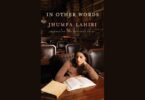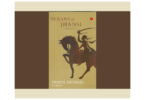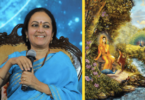Religious History has a way of weaving itself into the strands of our life in a most profound manner. Though an atheist myself, I cannot help but explore the endless ocean of mythical dynasties that acquaint us with the innumerable legends of the Gods and Goddesses of men. My search for these quaint lores of the past has often led me through failed discoveries and perhaps a greater belief in the non-existence of a Creator and in my humble quest, I found myself stumbling upon, or rather agreeing to review the book Rise of Kali: Duryodhana’s Mahabharata (Ajaya Book 2) written by the much acclaimed author Anand Neelakantan.
The story of Mahabharata as told by Sage Ved Vyas is simple. It’s a story of the Kuru clan that was torn apart with internal politics and (to a greater extent) the personal ambitions of two women – Gandhari and Kunti – the first ladies of Kuru Dynasty. As with any other epic, once we start sifting through the jargons and innuendos, we realise it’s nothing but a story driven by the emotions of women (and more often than not, women in position of influence and/or power), an often misunderstood and underrated theme that is eventually photoshopped and glossed over with the many valours of men.
As a 90’s kid, my childhood has been pretty much stereotypically influenced with the TV series of the two greatest Indian Epics – The Ramayana and Mahabharata – and the various tales of the Puranas. Add to that the textbook versions of Yudhisthira’s Dharma and Krishna’s Ted Talks through the pages of Geeta and you get the image of a child who has grown up listening to the bravados of the five brothers and the intellectual superiority of the religious scriptures, much of which begets the question of their relevance in today’s complex life.
The reason I am reminiscing is because as an Indian whose life has been inherently influenced by these two epics in myriad ways often unknown to the spiritual mind, it is increasingly difficult for me to do proper justice to a book whose story has seeped through centuries of civilization and yet remain true and relevant in its core even today.
A word of caution:
Before commencing to flip through the pages of this book, readers should keep in mind that it is ultimately a work of fiction based on a story that took place centuries ago. Hence, there could be numerous interpretations for the same actions. Saying that, however, does not undermine the incredulous effort that the author had put forth in bringing forward such a brilliant read.
The Rise of Kali:
This book is the second installment of AJAYA: Epic of the Kaurava Clan and starts with the author’s personal strife to understand the meaning of life and death in face of an intimate tragedy. The stage is set to the infamous scene of Draupadi’s molestation by her brother-in-laws in presence of her five husbands and the entire court of Hastinapur. The incident, more commonly referred to as Draupadi’s Vastraharan/Cheerharan, is a glaring question mark on the Indian stand with regards to a woman’s sanctity and is a turning point in this epic’s drama. However, considering this book is a work of fiction that tries to balance spiritual mysticism with materialistic reality, the author entirely skips the part where Krishna famously rescues Draupadi from her shame, with his magical prowess. There is also little mention of the life of the Pandavas during exile, but again there are stories and anecdotes that I have never heard of before, especially about Shakuni, Aswathama and Abhimanyu, which made quite an interesting read.
[color-box color=” customcolorpicker=” rounded=false dropshadow=false]..the Mahabharata is so much bigger than any single character, that anyone who devotes himself to the point of view of a single person would invariably fail to grasp the essence of the epic itself and find himself lost in the maze of questions that this book raises. [/color-box]
This book lends a much needed voice to Duryodhana – the man who has always been the evil nemesis of the Pandavas and the one usually held responsible for the Cheerharan episode, which resulted in the final tilting of the scales favoring the Pandavas in the war between Dharma and Adharma. Perhaps this was the only act that Duryodhana could not justify himself with and neither could the author on his behalf.
But the Mahabharata is so much bigger than any single character, that anyone who devotes himself to the point of view of a single person would invariably fail to grasp the essence of the epic itself and find himself lost in the maze of questions that this book raises. Hence, much appreciated is the fact that the author has tried to justify everyone’s action with their personal struggles and beliefs, including the ever conniving Shakuni, the mleccha (foreigner) whose land was raided by Bhisma.
Krishna’s conversation with Balarama & Arjuna and his philosophy on Dharma have not been explored a great deal, which was to me somewhat of a let-down. Some would say that is the core of Mahabharata but the truth is Mahabharata is the physical aspect of life while Geeta is its spiritual counterpart. I wouldn’t say I understand Krishna or his philosophy or the reason why people still insist on worshiping a man who almost single-handedly devastated two clans – the Kurus and the Yadus. But the complexity of such a character should perhaps have found some more space in this book.
[color-box color=” customcolorpicker=” rounded=false dropshadow=false]As Shakuni so aptly puts it, “The easiest way to conquer Bharat Varsha is to march a few cows before the invading army”. [/color-box]
One interesting anecdote that I have been waiting to write about ever since I started reading this book: a wife’s honor can be pawned but a cow’s life cannot be compromised. As Shakuni so aptly puts it, “The easiest way to conquer Bharat Varsha is to march a few cows before the invading army”. Yes, it is painfully hilarious the way author had the forethought of writing it, given the recent incidents that are shaking up the cultural roots of the country.
The author has kept the language simple and easy to follow and the book gives a balanced view of both sides of the same coin – Dharma – the philosophy that is both our staff and our yoke to carry. Growing up with BR Chopra’s Mahabharata, for most of us it is somewhat easier to follow Yudhisthira’s Dharma but time has made me realize that History has always been written by the victors. So perhaps, now is the time to rewrite History, a history that is unbiased and impartial and not afraid of questioning our age old traditions and beliefs. This book is one of the many first steps taken in that direction and I salute the author for doing it so profoundly.
I have read Asura:Tale of the Vanquished: The Story of Ravana and His People, by the same author and it has been a pleasure to go through his work again. However, an epic of this proportion can’t be justified in just two volumes and I felt there were many instances where the author simply skimped the narration to contain the story in a limited number of pages. But after all that is said and done, hats off to the author for nailing the art of compiling a work of fiction for the layman, and writing a credible narration that can be grasped and finished without getting bored.
The Rise of Kali or Ajaya, for that matter, is not the modern equivalent of Mahabharata, nor does the author claim it to be so. What it is, in fact, is nothing more than one of the many interpretations of what could have been; and for a generation of lost souls who seek their roots in Indian Mythology trying to make a logical sense of their illustrious past, this book is a bright light of reason in the blinding darkness.
While reading this book, I did not find any legitimate means to understand Dharma. But what I did find is a story that I have seen unfold in my own life and have failed to grasp the meaning of. There are no absolutes in life and perhaps there is no cause that’s worth fighting for or worth turning against your own brothers for. Like the author said, the best way to understand something is to have a healthy debate about it, and the author has successfully launched one of the biggest debates of this century, especially at a time when a few Hindu radicals have forgotten what makes our roots so strong – to quote the author – the absence of Blasphemy in our religion and its openness to critical thinking.
To think I discovered all this because I can never let myself miss a good old story!
Goodreads rating of Rise of Kali: Duryodhana’s Mahabharata (Ajaya Book 2) – 4.2/5
Be a good Samaritan: If you liked this review, please share it with others. If you did not like it, share it with us in the comments below. 
We regularly publish original book reviews. Our other book reviews can be read here. Contact us if you are an author/publisher and want us to review your work.
Our affiliates:
If you would like to purchase ‘Ajaya – Rise of Kali (Book 2)’ by Anand Neelakantan, you can do so from our affiliates at
Amazon (Paperback): Rise of Kali: Duryodhana’s Mahabharata (Ajaya Book 2)
Amazon (Kindle Ed.): AJAYA – RISE OF KALI (Book 2)




